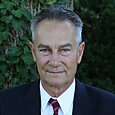Ned Mamula is a senior geoscientist and geologist with over 30 years of experience in the fields of energy and mineral exploration, production, and resource policy on federal lands. He has significant experience in government, industry, and academia with oil, gas, shale oil and gas, natural gas hydrates, coal, uranium, and critical and strategic minerals.
During his career, Mamula has been employed by leading scientific and intelligence agencies including the U.S. Geological Survey (USGS), the Department of Energy (DOE), and the Central Intelligence Agency (CIA), focusing mostly on domestic and international energy and mineral research and development projects.
His tenure with the U. S. Department of the Interior Geological Survey and the Minerals Management Service involved energy and mineral resource assessments, environmental policy, and the administration of federal leases. While in the energy industry, he worked with teams of geoscientists at various companies involved with onshore and offshore oil and gas exploration and production.
At the Cato Institute, Mamula has worked to educate the media, Congress, government decision makers, academia, and the private sector on the need for strong, science-based policy positions that acknowledge our society’s growing energy and mineral resource needs. He also works to increase awareness of the opportunities and looming regulatory threats to the nation’s energy renaissance—and the negative consequences of politicizing the nation’s minerals and geoscience.
Mamula received a B.S. from Slippery Rock University with a concentration in Economic Geology, an M.S. in Geosciences from Penn State University, a Ph.D. in Petroleum Geology from Texas A&M University, and a Master’s Degree in International Public Policy (MIPP) with an emphasis on Strategic Studies/Energy Policy, from Johns Hopkins University, School of Advanced International Studies (SAIS).
He is a member of the American Association of Petroleum Geologists, American Geophysical Union, American Institute of Professional Geoscientists, Geological Society of America, and Geological Society of Washington.
